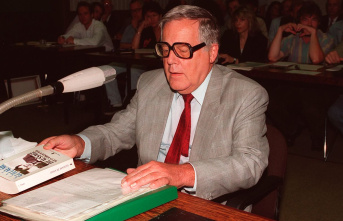This article first appeared on The Conversation.
Only a small portion of what we communicate to others is represented by the words we use in conversations. Non-verbal language, also known as facial expressions, gestures, space, and voice tone (prosody), are all important clues that help us understand.
Communication allows us create connections between individual realities that are otherwise impossible to comprehend. It allows us share our needs and better understand others. In short, communication allows us find our way through the maze of relationships. social.
Communication is a complex process. Even if we don't speak, our subtly transmitted messages whose nature is determined by the context and the experiences we share with our interlocutor.
This phenomenon is known as "social silence". The sensation is described as "social silence" and can be described as an emptiness or parenthesis in natural speech flow. However, it allows for an incredible range of emotions to be expressed. While some people can decode the situation and live with it without worrying, others may feel embarrassed.
Since silences can have a profound effect on interaction dynamics and the emotions of participants, scientists have studied them for decades. Researchers studying this phenomenon have identified three types of silence: individual pauses, pauses during conversation and social silence.
Individual breaks are when one person speaks to an audience. This could be an actor reading a monologue, or a student giving an oral presentation to his classmates. Silence can be used to grab attention and interest, but it can also indicate unfamiliarity with the topic matter (especially for those suffering from social anxiety).
Conversational interruptions can be described as "awkward silences" and are the closest thing to it. These are those situations between people that disrupt expectations of smooth communication. These can happen between people who don't know each other well, or between people who have known each another for years. It all depends on how trust is established.
The last category is the unexplained silence. This is something we all have experienced at some point in our lives. This happens when more people interact simultaneously (telling stories, having side conversation, etc.). Everything stops suddenly, creating a deafening silence. This is where worry and humor collide. It's often said that "an angel passed by".
Keep in mind that silences can be used to communicate and can even be useful in some situations, particularly when they are part of active listening. As Jorge Luis Borges said, "Don't speak unless your words are better than silence" ("No hables al menos que puedas mejorar el silencio").
Silence is a disruption in the natural dynamics of conversations. This logic is the same as that of other social processes that involve coordination between the parties. They are more fluid because the flow of the interaction is predictable. This helps to calm interlocutors about uncertainty that comes with any relationship.
Fluency in conversation has been shown to increase a sense belonging and the stability of a certain bond. This sets it apart from other bonds. We also foster a sense consensus when we give answers quickly, which suggests that we are ideologically as well as emotionally aligned.
Fluid conversations foster a sense a social belonging, legitimize everyone in the group, give control over relationships, and help build self-esteem. Silence can be a sign of an underlying conflict, or the presence if emotions one does not wish to express, which can lead to insecurity.
Silence does not have to be uncomfortable. If the connection is strong enough, and there is trust between the speakers, it can even be a chance to make connections. If there are no underlying conflicts, silence does not carry the negative emotions that can be attached to people who are unable or afraid to form social bonds.
People with high self-esteem are more comfortable experiencing silences. People with high self-esteem do not project any negative thoughts about others. Silence, which can sometimes be a sign of our fears or insecurities, quietly occurs in conversation without causing any disturbance.
We can use silence to our advantage and get something good out of it. It can help us organize our thoughts before speaking, give us a moment of intimacy and bring calmness in a noisy world.
The effects of silence on our health and well-being could be more dependent on how we interpret it, than what others intend to do. This nuance can be helpful in understanding how to approach it constructively.












